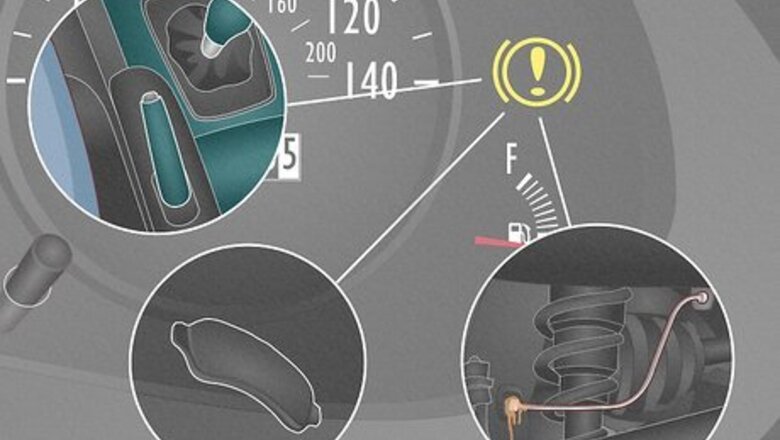
views
- Brake service warning lights indicate an issue with the parking brake, the brake pads, or the hydraulic lines.
- If the brake light turns on and off, you probably have a bad brake sensor or control unit.
- Do not drive if you suspect you’ve got an issue with your brakes or you have any issues controlling the vehicle.
Why is the brake service light always on?

A persistent service light indicates a serious problem that needs attention. If the brake service light is on and it doesn’t go away, it’s likely that your brakes need to be serviced or repaired. A persistent brake light is likely triggered by one of three potential issues: Parking brake misalignment. Your manual parking brake is stuck, damaged, or worn down and is interfering with your steering/braking. Signs this is the issue: The parking brake lever is stuck or feels “off.” You may also smell a burning aroma. Worn brake pads. Brake pads wear down over time from all the grinding against your rotors and they need to be replaced periodically. Signs this is the issue: Your brakes squeal or make noise when you press the pedal, and your braking speed feels delayed. Hydraulic issues. Your brake system relies on hydraulic fluid to apply pressure to the brake pads. When you press the brake pedal, the fluid is compressed, which pushes the pads against the rotor. If the hydraulic fluid is leaking or low, your brakes won’t work as intended. Signs this is the issue: Your braking speed is delayed, your car wobbles or shakes when you brake, you see fluid leaks under your vehicle, and you smell burning when you brake.
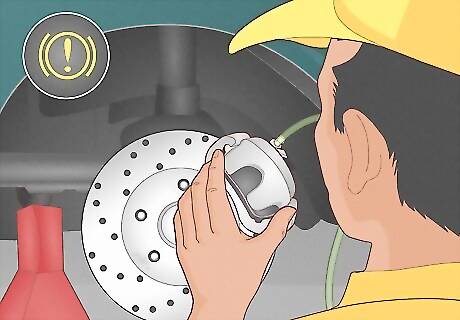
See a mechanic if your brake light is on. Regardless of whether the parking brake, brake pads, or hydraulics are to blame, none of the repairs are DIY jobs. Our expert, Tom Eisenberg, operates a AAA-certified auto shop and agrees. “If you mess with your brake lines without knowing exactly what you're doing, your pedal may fall to the floor when you try to drive your car again, and you'll lose your brakes.”
Brake Light Comes On and Off
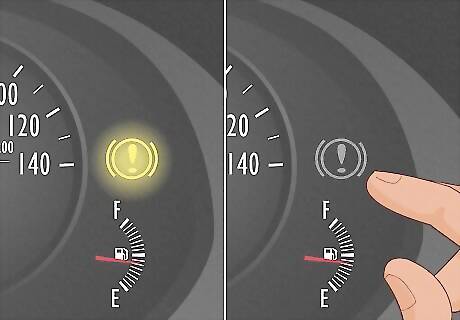
Your brake’s sensors are likely defective. If your brakes seem to be working just fine and there’s nothing wrong with your vehicle but the brake light keeps coming on and off, it points to an electrical issue. Specifically, you’ve probably got faulty brake sensors. See a mechanic to have the sensors inspected and replaced as needed. If all of your dash lights seem to come on and off, you probably have a bad engine control unit (ECU), which is your vehicle’s central computer.
Brake Light Comes On While Driving
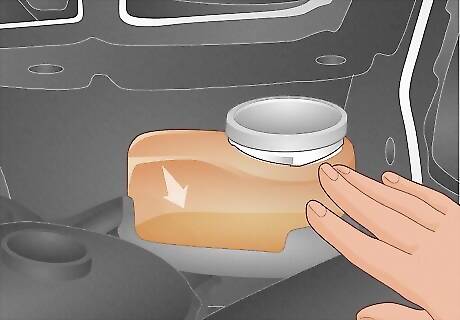
Your brake fluid is probably low. Don’t panic—most vehicles have a backup hydraulic line to avoid brakes from failing in the middle of a ride. Put your emergency lights on and pull over. Check the fluid level by looking at the clear reservoir for the brake fluid or by checking the brake fluid dipstick. If you are low and you don’t have the necessary fluid, have your vehicle towed. If you do have the appropriate fluid, add brake fluid until you reach the fill line and drive to the mechanic. You likely have a leak that needs to be repaired. If the brake fluid levels are fine, it’s likely the master cylinder sensor has malfunctioned. This is the sensor that monitors the brake fluid levels. If the brake light comes on right when you turn the car on and it doesn’t go away, do not attempt to drive the car.
Brake Light Comes On When You Press the Pedal

Your brake switch is likely broken or to blame. If your brake light comes on whenever you press the brake pedal down and your brakes are working fine, your brake switch is probably damaged or stuck. Under your brake pedal, there’s a small button that engages the brake lights when you press the pedal down. If that switch is no good, your vehicle may think the brakes need service. Depending on your make and model, you may have a brake light warning illuminate on the dash instead of a brake service warning. There’s a chance that this also indicates a hydraulic loss on one side of your vehicle or low brake fluid, but a bad switch is more likely.
Why is the parking brake light on?

Check to make sure the parking brake isn’t engaged. The parking brake (also known as an e-brake or emergency brake) is a kind of emergency brake. If the parking brake light is on but the “brake” or “brake service” light isn’t on, the parking brake is likely activated. You likely turned the brake on by accident. There are 3 types of parking brakes, so figure out which one you have and try turning it off. Pedal brakes. These are more common on older manual cars, look to the far left of the area under your steering wheel. If there’s a pedal next to your clutch you don’t recognize, it’s probably the e-brake. Press that pedal down to unlock the parking brake. Lever brakes. See a lever with a button on top in the center console? That’s a lever brake. Press the button and push the lever all the way down to unlock the parking brake. Button brakes. Button brakes are common on newer vehicles. Look on the center dash for a “parking” or “P” button and press it. This should turn the parking brake off.
Why is the ABS light on?
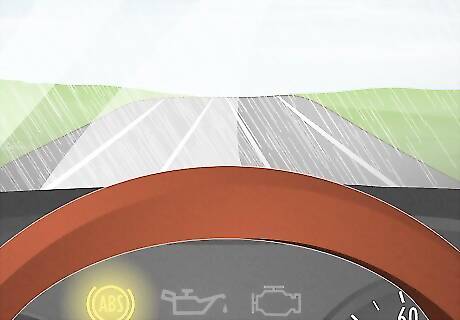
If the ABS light comes on when you brake in the rain, it’s okay. The ABS indicator on your dashboard indicates your ABS system is active. ABS stands for anti-lock braking system. This system automatically prevents the tires from skidding when the road is wet, slippery, or frozen. So, if that ABS light popped on while you were braking in inclement conditions, nothing is wrong—this is just your vehicle’s way of letting you know the ABS is active. If the ABS system activates frequently while you’re driving, it’s a good sign you need to slow down on the road. The ABS only kicks on if you’re in danger of skidding, so you’re likely traveling too fast.

If the ABS light stays on, the electrical is likely to blame. The ABS system isn’t active when you’re stationary or idling, so if the light stays on it points to the electrical system. It’s possible the ABS fuse is blown and needs to be replaced. Alternatively, the ABS computer module or ABS sensor has gone bad. In any case, take your vehicle to the mechanic to have it repaired. This is one of the few brake problems where you’re likely in the clear to drive for a bit. So long as the vehicle’s brakes are working properly, you can drive to the mechanic.
Can you drive with the brake warning light on?
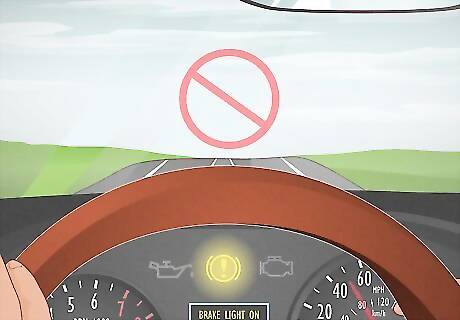
No, it’s not safe to drive if your brakes aren’t working properly. If you’ve got any kind of brake issues (beyond an active ABS light), avoid driving. As annoying as it may be to wait for a tow truck, it’s not worth risking your safety. Your brakes may fail if they’re damaged or not working properly, and it’s unsafe to operate a vehicle without fully functional brakes.














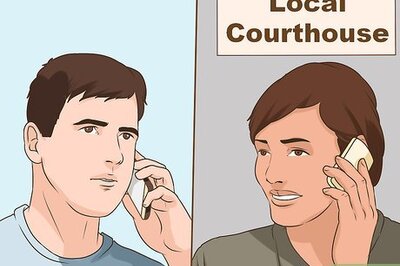
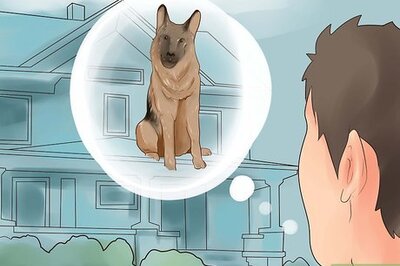
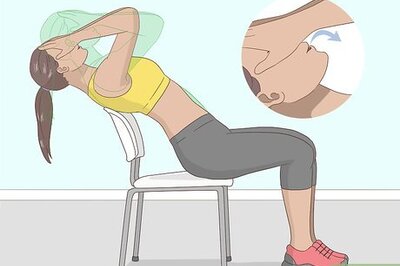


Comments
0 comment